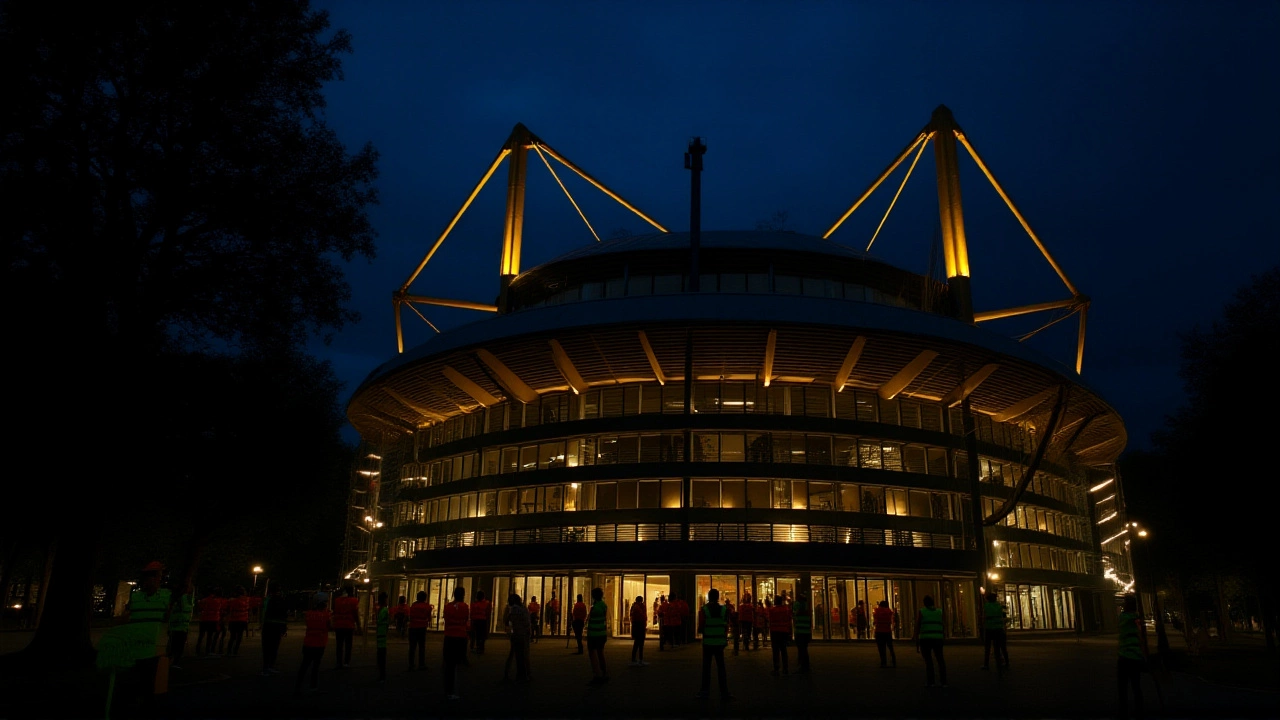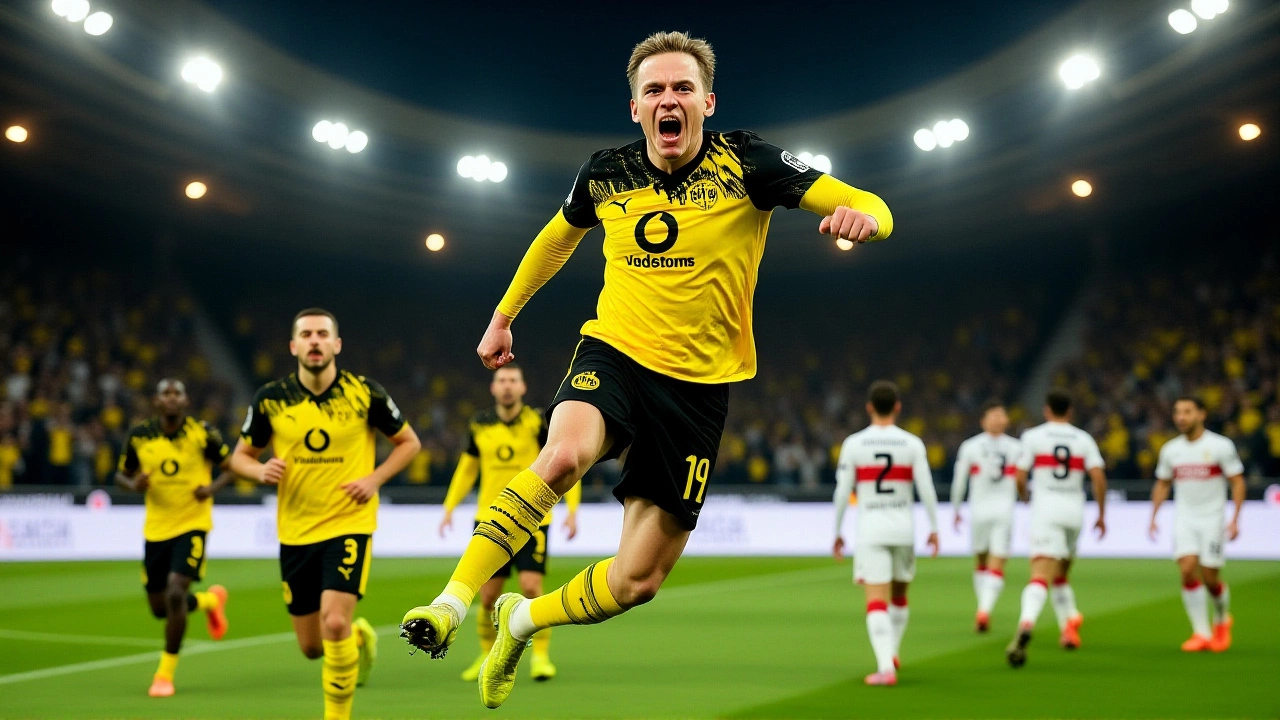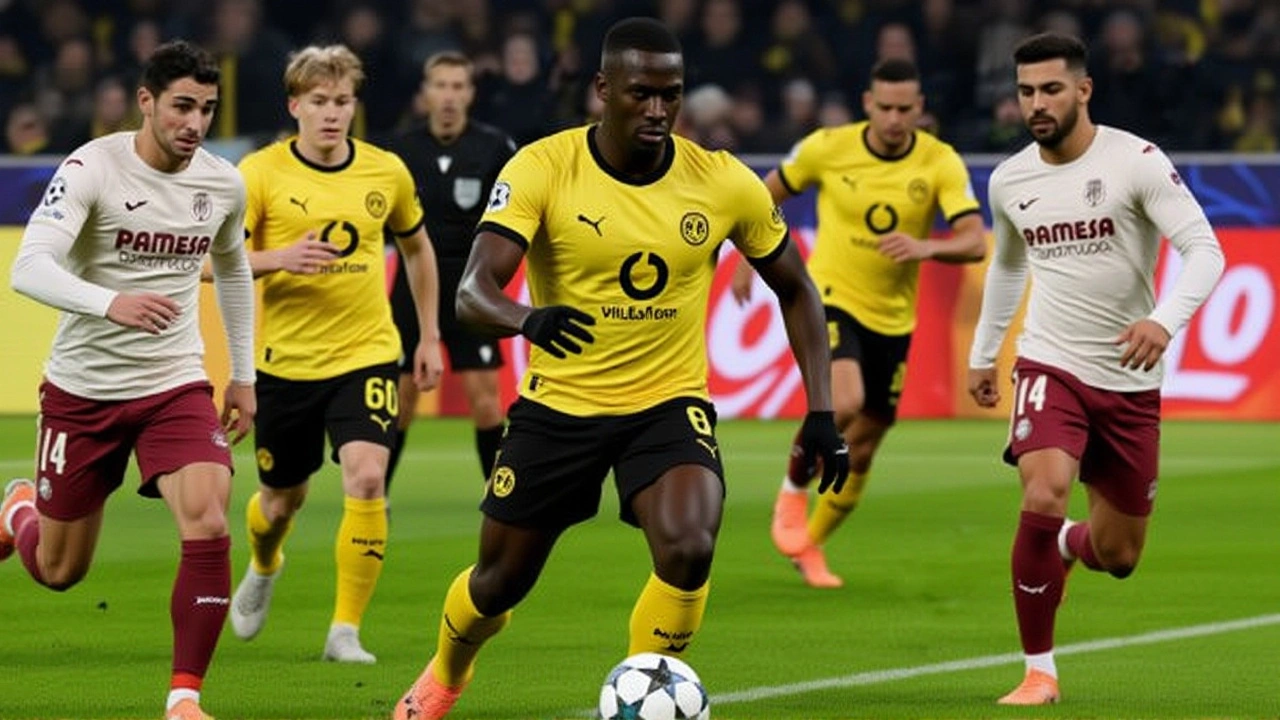On a cold Tuesday night in Dortmund, Borussia Dortmund sent a chilling message to Europe’s elite, dismantling Villarreal CF 4-0 at Signal Iduna Park. The rout, which came on Matchday 5 of the 2025/26 UEFA Champions LeagueDortmund, Germany, wasn’t just a win—it was a statement. Sebastian Guirassy struck twice, Karim Adeyemi added a third, and Mats Wieffer sealed it with a late dagger. Villarreal, once La Liga’s surprise package, left with nothing but questions—and a red card for Pau Torres Foyth after a 52nd-minute yellow turned fatal.
From Dull to Devastating
The first half was a snoozefest. Chances were sparse. The crowd held its breath. Then, in the 45th minute plus two, everything changed. Sebastian Guirassy pounced on a rebound after Aaron Anselmino’s cross found no one—until it found him. Villarreal protested. VAR reviewed. The goal stood. No handball. No controversy. Just cold, hard football. "Es gibt Proteste von Real, aber das Tor hält der Videobutachtungsstand," the BVB-TV highlights noted. The goal counted. Dortmund led.
It wasn’t just the goal—it was the shift in momentum. After 31 minutes of cautious tussling, Dortmund suddenly looked like a team with purpose. By halftime, they were controlling the tempo, the space, the nerves. Villarreal, meanwhile, looked like a side trying to survive, not attack.
The Second Half: A Clinical Execution
There was no letup. Seven minutes into the second half, Karim Adeyemi cut inside from the left, shrugged off a weak challenge, and buried it low past Luis Junior. The stadium erupted. The scoreboard flashed 2-0. Then, just seven minutes later, Guirassy did it again—this time with a cheeky chipped finish over Junior after a one-two with Fábio Silva. 3-0. The game was over. The fans knew it. The Villarreal bench knew it.
And then, in the 90th minute plus five, Mats Wieffer—a midfielder many had forgotten—stepped forward, latched onto a loose ball, and drove it through a sea of defenders. 4-0. The final whistle was almost a relief for Villarreal. At least it was over.
Numbers That Tell the Real Story
The stats were absurd. Borussia Dortmund recorded 30 clearances. Villarreal: 1. Dortmund had 3 shots on target. Villarreal: 1. Luis Junior made 3 saves—each one more desperate than the last. And then there were the fouls: 12 by Dortmund, 1 by Villarreal. That’s not just dominance. That’s humiliation.
And the red card? Pau Torres Foyth’s second yellow came after a reckless lunge on Adeyemi. It wasn’t the worst tackle of the night, but it was the most symbolic. By then, Villarreal had stopped trying. They were just waiting for the final whistle.

What This Means for the Champions League Race
This was Matchday 5 in the new 36-team league phase—a format that’s already rewritten the rules. Before this match, Dortmund sat at W3 D1 L1. Villarreal? W0 D1 L4. Now, after this result, Dortmund are all but guaranteed a top-8 finish, which means automatic qualification for the knockout rounds. Villarreal? They’re mathematically alive—but only just. They need a miracle against Napoli and a miracle against PSG. And even then, they’d need help from three other teams.
Their campaign is effectively over. The same can’t be said for Dortmund. With a home win over Real Madrid earlier in the group stage and now this demolition of a Spanish top-four side, they’ve proven they’re not just contenders—they’re favorites.
The Bigger Picture: Dortmund’s Resurgence
This isn’t just about one match. It’s about a club rediscovering its identity. After years of rebuilding, Dortmund have found balance. Guirassy is a revelation—12 goals in 11 Champions League games this season. Adeyemi is electric. Wieffer, the quiet Swedish midfielder, is suddenly the engine they didn’t know they needed.
And the defense? Nico Schlotterbeck—misidentified as "Anton" in some YouTube transcripts—was rock-solid. No errors. No panic. Just calm, intelligent play.
They’re playing with confidence. With swagger. With the kind of attacking flair that hasn’t been seen in Dortmund since the Klopp era. This isn’t luck. It’s a system. A philosophy. A team that knows how to win.

What’s Next?
Dortmund travel to Napoli on December 11, needing only a draw to seal top-eight status. Villarreal host PSG on the same day, knowing a loss all but ends their European hopes. Their season now hinges on La Liga survival—and even that feels uncertain.
For Dortmund, the next step is clear: dominate. They’re not just playing for points anymore. They’re playing for legacy.
Frequently Asked Questions
How did Sebastian Guirassy’s first goal survive VAR review?
VAR confirmed no handball by Dortmund defender Nico Schlotterbeck, despite Villarreal’s protests. The ball deflected off his leg after Aaron Anselmino’s cross, and Guirassy pounced on the rebound. Officials ruled it legitimate, and the goal stood—validating Dortmund’s attacking intensity and exposing Villarreal’s defensive fragility under pressure.
Why was Mats Wieffer’s goal so significant?
Wieffer, a 24-year-old Swedish midfielder, had been largely overlooked this season. His 90+5’ goal wasn’t just the final nail—it was proof of Dortmund’s depth. With substitutes like Fábio Silva and Emre Can on the bench, Wieffer’s late strike showed that even fringe players are capable of delivering in high-stakes moments, a sign of strong squad cohesion.
How does this result affect Villarreal’s chances in La Liga?
Villarreal’s Champions League collapse has already dented morale and finances. With only one point from five matches, they’re now focused on avoiding a top-half finish in La Liga. A poor European campaign often translates to lost revenue and reduced squad quality next season—making their domestic survival more critical than ever.
What’s different about the 2025/26 Champions League format?
The traditional group stage is gone. Now, 36 teams play eight matches in a single league table. Top eight qualify automatically for the Round of 16; teams 9–24 enter a playoff. This format rewards consistency over one-off performances—and Dortmund’s 3-1-1 record now looks far more stable than Villarreal’s 0-1-4.
Who was the standout player for Borussia Dortmund?
Sebastian Guirassy was the clear standout—two goals, relentless movement, and clinical finishing. But Karim Adeyemi’s pace and work rate disrupted Villarreal’s backline all night, while Mats Wieffer’s composure in midfield gave Dortmund control when they needed it most. Together, they formed the perfect trio.
Could Villarreal have avoided this result with better tactics?
Possibly. Villarreal’s ultra-defensive approach in the first half handed Dortmund the initiative. They never looked to press high or exploit Dortmund’s high defensive line. Once Guirassy scored, their lack of attacking ideas became fatal. They played like they were afraid to lose—not like they were trying to win.
